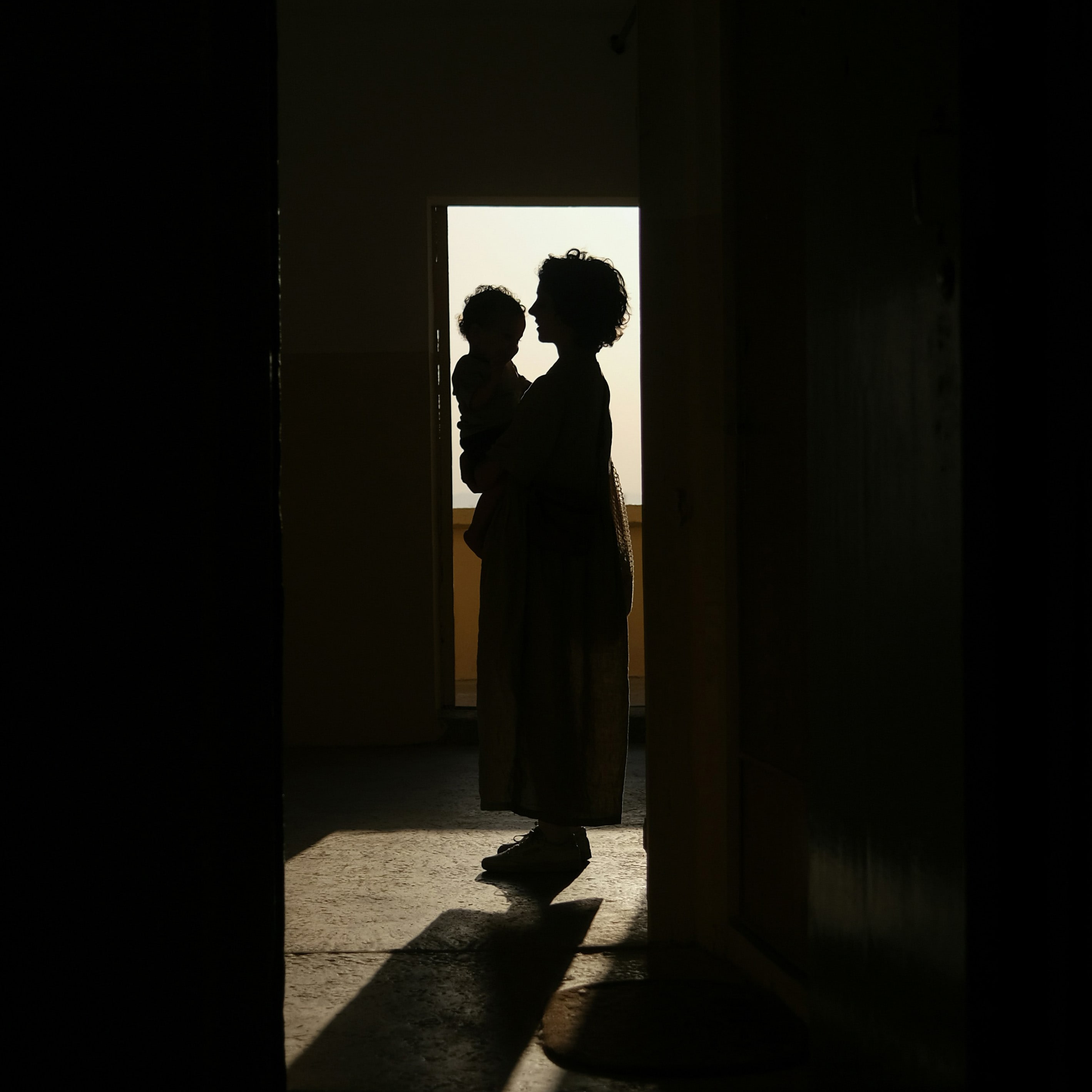Traditional gender roles among couples in Switzerland become even more entrenched after the birth of a child. He works full-time, she reduces her hours or stops working altogether. Not because that is what they both want, but because politics and society leave them little choice.
The gender pay gap, the gender pension gap, the unequal distribution of paid work and care work – these problems have been known for years. And yet little has changed. In Switzerland, the gaps are particularly persistent. Not because women and men want it that way, but because political and social alternatives are blocked. Since 2016, Switzerland has been languishing in 26th place out of 29 OECD countries in the Glass Ceiling Index. World leader? Far from it.
Men work, women provide
Our analysis of two decades of data from the Swiss Household Panel (2002–2020) shows that many couples adhere to traditional divisions of labour. Men are the main breadwinners, while women take care of the household and children in addition to working part-time. The birth of a child is a decisive turning point: while many couples previously worked equally, mothers reduce their paid working hours or leave the workforce altogether after their first child. Fathers continue to work full-time. And this remains the case even as the children get older.
Our research also shows that couples with egalitarian values are more likely to deviate from traditional patterns. Women's egalitarian attitudes in particular influence whether and how they remain in employment. At the same time, it is crucial that the value of care work is recognised. Our data shows that the beliefs of men and fathers play a particularly important role in achieving a more equitable distribution of unpaid work.
But personal attitudes alone are not enough. The Federal Statistical Office (FSO) recently highlighted how much the ideas of a fair division of care and paid work differ from the reality.
In other words, even if both partners want things to be different, social and economic conditions stand in their way and prevent an equal division of paid work and family responsibilities.
Do mothers even have a choice?
Switzerland provides only marginal support for families. It was not until 2005 that 14 weeks of maternity leave was introduced – and fathers have only had a legal right to two weeks of paternity leave since 2021. By comparison, in Sweden both parents get a total of 16 months, and in Germany it is 14 months. Childcare for young children is also very expensive in Switzerland compared to other European countries and is not available nationwide. Many cantons lack sufficient childcare places, so parents have to rely on grandparents or expensive private solutions.
These structural barriers and cultural expectations of the mother's role as primary caregiver reduce women to their roles as mothers and wives, forcing many into part-time work arrangements that do not always correspond to their original career plans. According to data from the FSO, the employment rate for women in Switzerland is high at 76 per cent, but almost 60 per cent of working women work part-time. What is particularly striking is that while more than half of all couples work full-time before the birth of a child, this proportion drops to less than 15 per cent when they have young children.
This gender-specific division has long-term consequences: women earn less over their lifetime, have poorer career prospects and are more affected by poverty in old age.
Solutions for visible care work
Our study shows that more and more couples are questioning traditional role models and breaking new ground. However, care work and paid work are not private matters – they are deeply socio-political issues. As long as care remains invisible, there can be no true equality. And where the right conditions are lacking, couples may be able to make individual decisions, but they do not have genuine freedom of choice.
That is why politicians need to take action. We need a society in which work is rethought and care is no longer invisible. Such a change can only succeed if care work is recognised and socially valued. Only when its value is collectively recognised will equality and equal opportunities become possible.
What we need
This requires structures that allow people to live and work as they wish – instead of bowing to the constraints of laws and society. To overcome the standstill and create genuine freedom of choice, we need:
- Childcare as a social responsibility: comprehensive, affordable, high quality.
- Fair parental leave: sufficiently long, paid, with a mandatory portion for fathers.
- Flexibility: parental leave must also be possible on a part-time basis.
- Tax fairness: no discrimination against dual-income families – individual taxation instead of joint taxation for married couples, deductibility of childcare costs.
- More men in care work: structural levers such as reduced working hours so that care work can be distributed fairly.
Ultimately, the revaluation of unpaid work leads to a fundamental reassessment of work itself. And the question of what really contributes to our collective prosperity. Wage and social policies are still based on a traditional model: the heterosexual couple who stay together for life with a clear division of roles.
However, the forms of cohabitation have become more diverse today. And today's structures do not take this sufficiently into account. That is why it is time to rethink these structures – for greater fairness through genuine freedom of choice.
This guest article is based on a recently published study and other research topics of the two authors. Bornatici, C., & Zinn, I. (2025). Beyond tradition? How Gender Ideology Impacts Employment and Family Arrangements in Swiss Couples. Gender & Society, 39(2), 285–320. https://doi.org/10.1177/08912432251317464
Isabelle Zinn is Professor of Diversity, Equity & Inclusion and New Forms of Work at the Bern University of Applied Sciences, Department of Economics, and an associate researcher at the University of Lausanne. Her research focuses on topics such as gender-specific ageing in the workplace, the distribution of paid and unpaid work, and the centrality of gainful employment. She is also co-director of the CAS ‘DEI through Organisational Development’ at BFH.
Christina Bornatici is a researcher at FORS – the Swiss Centre of Expertise in the Social Sciences – and at the University of Lausanne, and a member of the Gender Studies Committee of the Swiss Sociological Association. Her work focuses primarily on issues of gender equality in Switzerland, with a particular interest in attitudes towards equality and the division of labour.
Yes, count me in!
Equality is also a matter of money.
How about a paid membership?
MembershipOr maybe you'd rather subscribe to the free newsletter first?
Free newsletterHelp! You too talk about money. Because we no longer want to be economically dependent. Because we want to earn a lot right away. Because we are committed to a fairer future. Get in touch with hello@ellexx.com
Send us your question:



